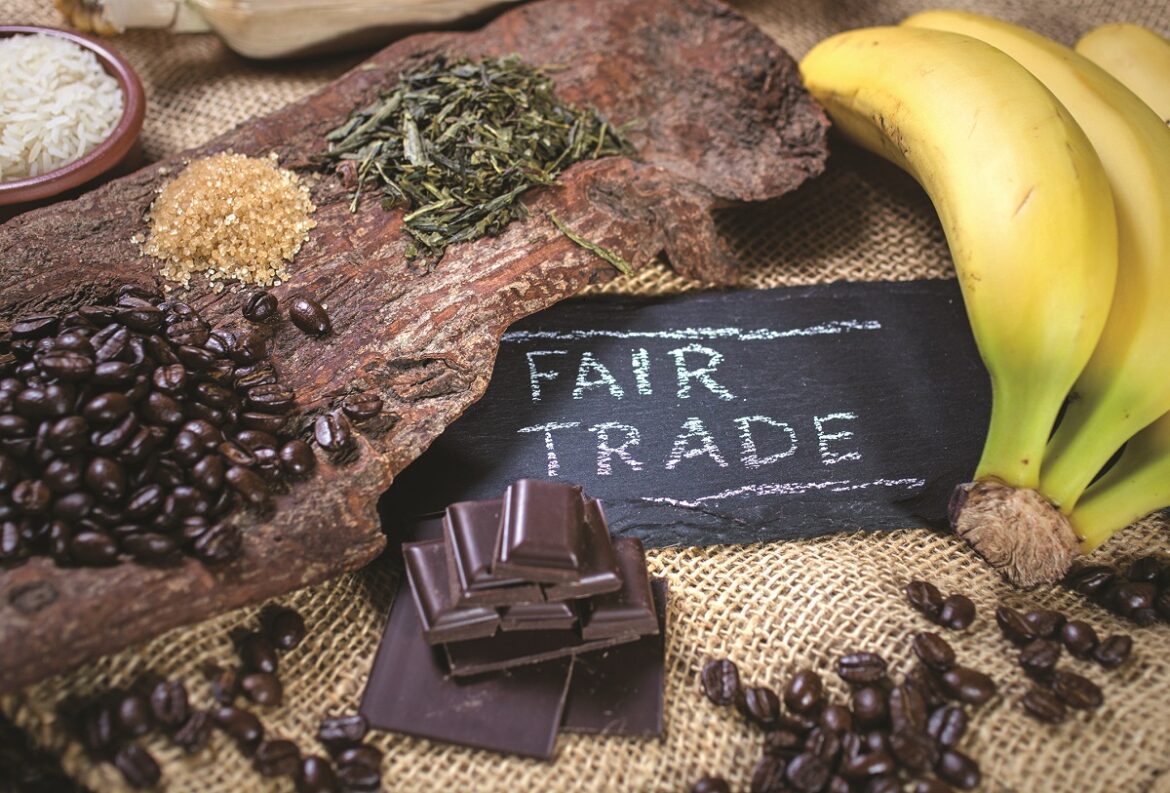A leading organisation has suggested that strong consumer demand for affordable, sustainable products will drive the Fairtrade market in 2023.
Fairtrade Premium from retail sales of bananas, coffee, flowers and tea grew steadily in 2022 and one in four members of the British public ‘always’ or ‘often’ choose Fairtrade products.
And as consumers strive to become more sustainable, they are increasingly demanding ethically sourced products such as bananas, chocolate and coffee, says the Fairtrade Foundation as its annual Fairtrade Fortnight campaign got under way.
The foundation explained that even when inflation means they have to change the way they shop, consumers still largely expect businesses to do the right thing in terms of sourcing. Its good, then, that sustainability doesn’t have to be unaffordable, says Fairtrade Foundation.
Fairtrade continues to perform well in the retail space. Fairtrade’s latest research (Kantar 2022) reveals that 77 per cent of UK consumers have chosen Fairtrade products over an alternative. At the same time, Fairtrade Premium generated by retail sales of bananas, coffee, flowers and tea grew steadily in 2022.
This comes at a time when a new consumer poll, commissioned for Fairtrade Fortnight, reveals that nearly two thirds (64 per cent) of the British public either agree or strongly agree that buying sustainably sourced food in the supermarket is ‘a lifestyle change you can make to help protect food grown in countries at risk of climate change’.
Kerrina Thorogood, Commercial Partnerships Director at the Fairtrade Foundation, commented: “If the pandemic taught us anything, it’s that the UK’s food stocks are dependent on supply chains that are, in turn, reliant on a whole host of complex factors operating smoothly in the background. The salad and fresh produce shortages that hit British supermarkets in February 2023 have served as a timely reminder of this.
“Smallholder farmers and agricultural workers overseas who produce the food we love to eat are already struggling with fewer resources and higher prices as well as volatility in commodity markets and downward pressure on prices. Now, they are also having to deal with the potentially catastrophic effects of climate change, which shows no signs of slowing. There has never been a greater need for businesses to prioritise sustainability, ethics and fair pay for those in their supply chains. One way they can do this is by choosing Fairtrade.”
Fairtrade’s latest consumer research (Kantar, 2022) reveals that according to consumers’ perceptions of different ethical labels, Fairtrade performs very strongly on the environment.
The figures show that when it comes to ‘supporting farmers to diversify their income to be more resilient to climate change and other risks,’ twice as many UK shoppers now associate
this statement with the Fairtrade label as they do another prominent food certification scheme. Elsewhere, Fairtrade consistently outperforms in other sustainability categories, including ‘paying a fair price to producers’ and being ‘ethically and responsibly sourced’.
Jackie Marshall, Head of Brand and Marketing at the Fairtrade Foundation, added: “Today, Fairtrade’s work – connecting farmers, businesses and consumers on the path towards sustainability –
is more important than ever. Climate change, conflict and the global cost-of-living crisis are threatening marginalised communities in low-income countries, putting their livelihoods and the future of our food at risk. However, our research has shown that farmers who benefit from Fairtrade Standards, pricing and programmes are more resilient in times of global crisis. That’s why,
this Fairtrade Fortnight, we’ll once again be asking the British public and businesses to get behind Fairtrade so that together, we can continue to make the future as fair as it can be.”



